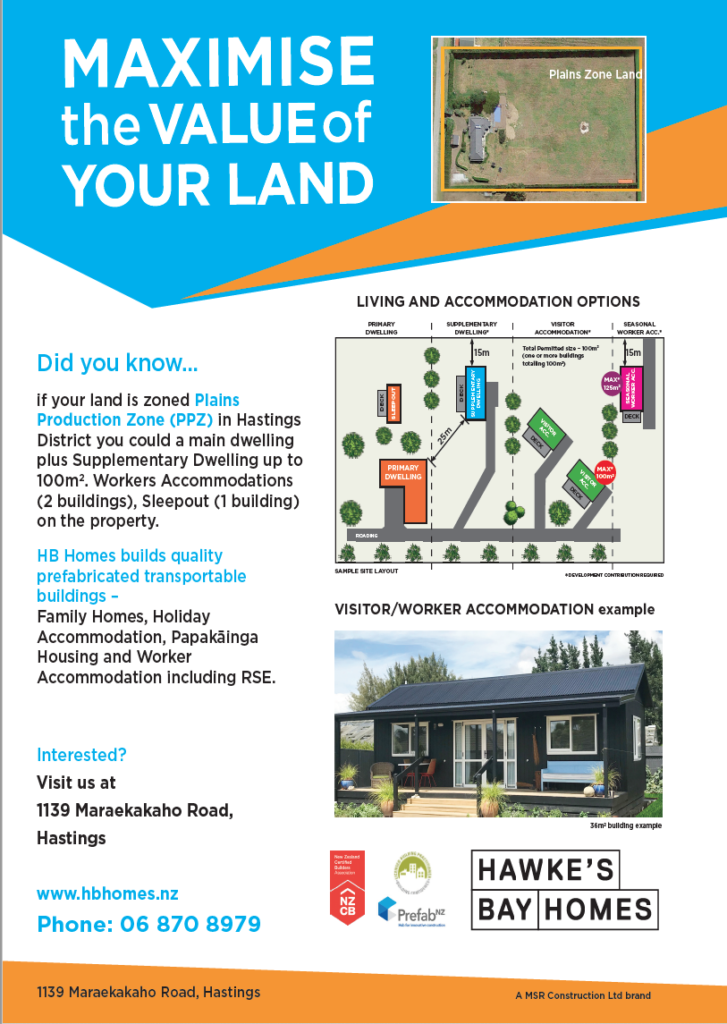Peter Fowler has an entrepreneurial spirit, an uncanny ability to see what others don’t and to always find a gap in the market for innovation.
A resident of Kahuranaki Road in the Tuki Tuki Valley, Peter is a journalist by profession. He has worked in newsrooms and was the Radio New Zealand (RNZ) voice of Hawke’s Bay for a number of years. But he was always questioning and probing. For Peter, innovating was always where he wanted to be; finding ways to bring the news to a mass audience in an easy and accessible digital format was always a priority.
It is this quest for better ways of delivering news that led him to create newsroom.co.nz, a digital platform that has gone on to be one of New Zealand’s top news websites, with a reputation for independent and investigative journalism.
Peter has long since moved on to his next venture, an app called VoxPop, which transcribes voice to text and is also of broadcast quality so allows it to be used for radio interviews. The term ‘VoxPop’ is short for ‘Vox Populi’, which means the voice of the people.
Peter says the concept came to him when he was the RNZ Hawke’s Bay reporter in 2016. He stumbled across a column of light armoured vehicles (LAVs) on a military exercise and needed to conduct interviews there and then.
He says that there was one problem, he had left the cord for his microphone in the office. He ended up using his phone to record the interviews.
“I came back and cut together a piece for Morning Report and it was very hard for the untrained ears to know that it had been recorded on a cell phone as opposed to a $4,000 recording machine.
“It then occurred to me that everyone is essentially walking around with a recording studio in their pocket and it could be possible to get production quality recordings from anywhere via your phone.”
Peter soon realised that the groundbreaker would be to have an app that recorded interviews and then transcribed them to text. Together with co-founder Andrew McMillan, VoxPop was born. However, they knew they had to get it out to the American market. They contacted Demian Perry, then the digital director at National Public Radio in the United States, who loved the idea, but later confided that he did not think it was possible to achieve given the complexities involved.
This introduction led to interest from American University Radio WAMU in Washington, DC and its radio talk show 1A.
But first, the product needed to be tested; so Peter built an RNZ VoxPop and trialled it on Jesse Mulligan’s show in the summer of 2017.
“It worked really well and so we built it for 1A – which has an audience of about five million and is syndicated on about 600 radio stations across America – and they embraced it.”
Peter and Andrew believe in a “viral” strategy – one that appears to have worked so far.
“We’ve priced it really low at the moment, because when you develop a new product that does a new thing, the first thing you need is proof of concept.”
To do this, users had to prove for themselves that the product was better than what they were doing at that time.
“The biggest problem I had in 1996 when I wanted to start newsroom was people didn’t understand the Internet, he is hoping the American market will open up a bit more as the grip of Covid-19 loosens.
He says a key strategy is getting a new pricing structure by using a business model whereby many clients pay small amounts of money rather than having a large upfront cost.
Now VoxPop has WFYI in Indianapolis, Science Friday, which has had Dr Anthony Fauci as a guest, and it is about to launch on The Money Pit Podcast. The product is also being launched in Australia with newspaper production company Pagemasters, which will act as the agents to sell VoxPop there.
With the launch of The Money Pit VoxPop comes an important update that means broadcasters will be able to publish comments back into the wire, therefore completing the ‘feedback loop’.
“It becomes a form of social media driven by voice. You have your own branded social media that is moderated, rather than engaging people on Facebook and Twitter where there are trolls and people get distracted.”
While VoxPop is very much anchored in public radio, the opportunities are endless. Peter has learned from the newsroom venture and recognises that it is possible to keep
one’s core product while pivoting and adapting where necessary. This mindset led them to change VoxPop into a remote recording studio for New Zealand and Pacific Community and Access Radio during Covid-19 lockdown last year. VoxPop Studio, as it is called, is still being used by broadcasters.
VoxPop is actively exploring interest from people who would like to use it for research, consultancy, commerce and customer interaction, as well as for people with hearing or visual impairments.
Overlaying all of this is the so-called ‘new Internet’. Peter foresees a time when VoxPop is integrated into the voice assistant webspace whereby users command their assistant (Siri, Alexa, etc.), record a VoxPop and send it all through the smart speaker network.
Peter is hopeful for the future and says Business Hawke’s Bay has given him good advice along the way.
“If you are an entrepreneur in Hawke’s Bay and you’re wondering about how to do things, Business Hawke’s Bay can be a huge help.”



